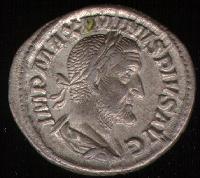Spread
Because currencies, unlike futures and stocks, are not traded through a central exchange, the spread can be different depending on the broker you use, so it’s well worth checking a few out before you open an account. Most forex brokers publish live or delayed prices on their websites so you can compare spreads, but check if the spread is fixed or variable. A fixed spread means exactly that - it will always be the same no matter what time of day or night it is. Some brokers use a variable spread, which might appear to be nice and small when the market is quiet, but when things get busy they can widen the spread which means the market must move more in your favor before you start to make a profit. Fixed spreads are generally slightly wider than the variable spreads are when at their narrowest, but over the long term fixed can be safer.
Execution
Some brokers will show live prices on their trading platform, but will they honor them when it comes to pushing the Buy or Sell button? The best way to find out is to open a demo account and give them a test drive. This will also give you the opportunity to see what the speed of execution is like - when you want to buy, you want to buy now, not sit around waiting for ten minutes whilst your order is confirmed!
Trading Platform
Good trading software will show live prices that you can actually trade at, not just indicative quotes. It will offer Limit and Stop orders, and ideally will let you attach these to your entry order. One-Cancels-Other orders are another useful feature - they mean you can set up your trade and then leave the software to get on with it. And the most important feature of all - can you actually understand the platform? Having all the bells and whistles is of no use if you can’t use them, so again, get a demo account and give it a go.
Support
Forex is a 24 hour market, so your broker should offer 24 hour support. You might not be trading at 3am, but that could be what time it is in your brokers head office on the other side of the planet, so make sure there will be somebody there to pick up the phone if things go wrong. You should also check if you can close positions over the phone - essential in case your PC or internet connection crash at a critical moment.
Backing
Finally, before opening an account do a little homework and find out about the company. Forex brokers are regulated, but that doesn’t mean they all have equal backing. If the market collapses, you want to know that they’ve got the reserves to cope with it and will still be around when you decide to withdraw your cash. If a broker is elusive when it comes to questions about their parentage and financial backing, then steer clear.
In Conclusion
Choosing a forex broker isn’t difficult, but don’t rush the decision. Check out a few, and always get a demo account first to make sure you’re happy with the way everything works before sending off your opening balance.











